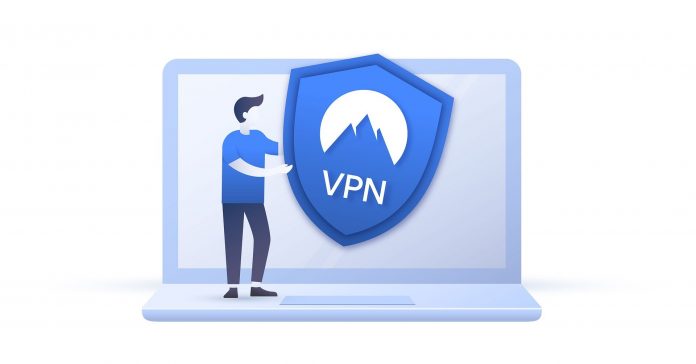If you frequent the Internet, you may have heard the abbreviation “VPN” (Virtual Private Network). The term “VPN” is often used to denote a service that allows access to blocked content or bypasses censorship.
These VPN apps establish an encrypted tunnel and send your data through a remote VPN server to the destination server (e.g. Amazon server if you are visiting amazon.com).
But What is a vpn and what does it do? This is a topic that we’ll address. Let’s get to the bottom of this.
What is VPN and What does it do?
VPN (Virtual Private Network), which redirects traffic to a particular server, makes your online activity invisible. Browse worry-free. You won’t be tracked or hacked to browse the internet.
Websites, as well as your Internet Service Provider (ISP), won’t see what you do online. VPN redirects all internet traffic through a remote VPN server. How? VPN creates a virtual link between your devices to the internet. It then sends all your internet data through an encrypted tunnel.
How does VPN work?
Let’s pretend you want to go to Amazon. The URL (https://amazon.com), is entered into the address bar. Click Enter to continue. After the Amazon homepage loads, you can begin your Christmas shopping. The technical side of this is a bit clearer:
- Your browser contacts a Domain Name Server. This server is assigned by your ISP. The DNS requests that the domain be translated into an IP.
- Your device will now be able to send a request to the Amazon server’s IP address and retrieve the website.
- Your ISP will route your request to Amazon Server and return a response.
While this may seem like a simple explanation, it is how any connection works even if you don’t use a VPN. This example shows that your connection will be encrypted as Amazon uses TLS/SSL. But, data encrypted would not be available if the website you visited doesn’t support TLS.
This type of session, while encrypted, isn’t very private.
- To send an ISP a DNS request, you are telling them you want to visit Amazon.com.
- You can communicate further with your ISP to tell them what Amazon is looking up.
- Amazon also has access to your IP address. This allows them to determine your location and, your identity
VPNs can be described as a combination of VPN infrastructure (such as VPN servers) and VPN software. Put, to establish a connection you need a remote client and a VPN tunneling Protocol (or VPN client application). This is how you can visit Amazon with a VPN.
- To begin, you would connect with a VPN server from a country of choice, e.g. UK.
- VPN apps use a tunneling method to establish an encrypted connection from the VPN server.
- Enter amazon.com in your address bar, and hit Enter. But this time, the DNS query was resolved by VPN. It obstructs your ISP’s knowledge of what you are doing.
- The VPN creates a connection between the VPN and Amazon.com server
- Traffic travels from you to the VPN server, then on to Amazon’s servers, and back
VPNs: Why are they good for privacy?
A remote VPN server allows you to connect to the Internet for many reasons.
- It conceals your IP address, and so your location, from the website or online services you use. Amazon would be able to see the VPN server’s IP address, rather than your own.
- It also blocks your ISPand, by extension your government from seeing what you’re doing online. But, your ISP can only see that your VPN server IP is connected to you.
- It encrypts data, protecting privacy and security in case someone intercepts. This is especially relevant if your internet connection is not encrypted via SSL/TLS.
Your browsing history may put you in serious trouble when you are in certain situations. Imagine that you are visiting China to visit a political forum in which users express anti-government views. You’re a Saudi Arabian citizen visiting a pornsite.
Without a VPN, your ISP has access to all your internet activities. This is especially true in countries with tight internet controls.
VPNs can redirect and encrypt traffic and are a favorite tool for anyone who wants online security, anonymity, and to block censored content.
What is VPN encryption exactly?
TLS/SSL is becoming popular on the internet, meaning that your browsing is almost always encrypted. But, tormenting and many other online activities remain in plaintext. Unfortunately, many websites do not have TLS. This leaves dangerous security gaps. VPN helps with this.
Security encrypts the VPN tunnel between your device and the VPN service provider’s servers. It signifies that your VPN provider’s server and your device are locked.
VPN secures all your internet activity, including your browser traffic, torrent traffic, messaging app traffic, and other activities you may be engaging in on the internet. So even if your browser is not secured, your connection will remain secure.
Although encryption can slow down the speed of your internet connection, it is not detrimental to your ability to access the Internet. It only makes it impossible for anyone to see network exchanges.
The Advanced Encryption Spec (AES), cipher is used to secure data by top VPN service providers. It’s the same encryption used in financial and government institutions.
How does VPN encryption function?
The encryption is persistent once you establish a connection with a VPN server. Your data is encrypted between your device & the VPN server. It can be deciphered only at endpoints when data reaches and leaves your device from a VPN server.
VPNs use three types of cryptography: symmetric encryption (asymmetric encryption), and hashing. Here is how VPN encryption works.
- When you connect to a VPN server, the connection performs a “handshake” between a VPN Client and a VPN Server. This is where hashing takes place to verify the user is interacting on a real VPN server. asymmetric encryption exchanges symmetric encryption keys.
- Once the handshake is complete, symmetric encryption can be used to encrypt any data passing between the user & the VPN server. AES (AES256) is the most used symmetric encryption cipher in VPNs.
AES is the most used data encryption method by VPNs. Let us take a closer look at AES.
Read More: How to change your password on insta








